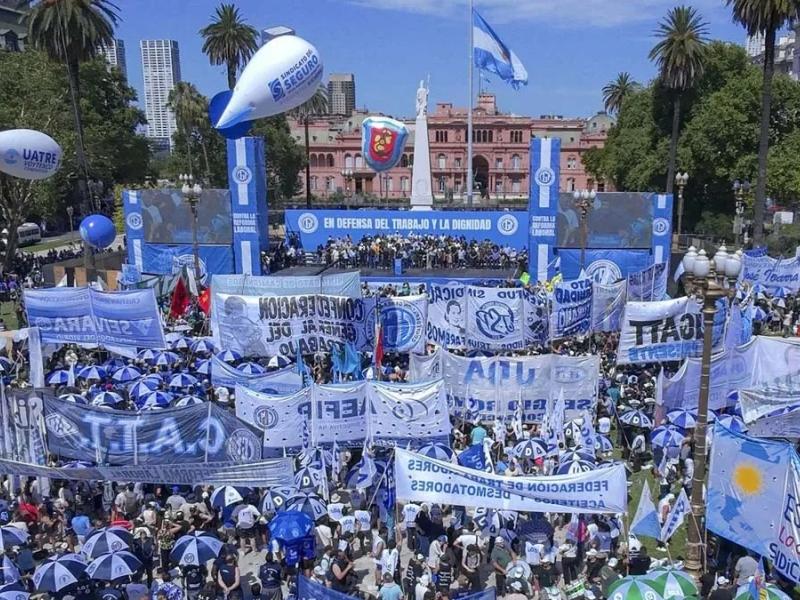The International Transport Workers’ Federation (ITF) and Global Labour Institute (GLI) have today announced a new initiative that will see the application of labour impact assessments in transport planning around the world.
The initiative, announced at the Transforming Transportation conference organised by the World Bank and the WRI Ross Center for Sustainable Cities, is supported by the Volvo Research and Educational Foundations (VREF) as a special study within its research program ‘Informal and Shared Mobility in Low- and Middle-Income Countries.
The project will launch an action agenda for the application of Labour Impact Assessment approach and methods in the procedures and policies of city authorities, national governments, multilateral development banks, and other international stakeholders which is set to greatly benefit sector actors, transport planners and policymakers concerned with wider reforms in the public transport sector, including informal transport.
A first stage of the initiative will be reviewing and synthesising findings and methodologies from Labour Impact Assessments of Bus Rapid Transit (BRT) projects in Nairobi, Dakar, Kampala, Accra and Abidjan and other initiatives designed to improve the quality, efficiency and decarbonisation of urban public transport in the informal economy. The synthesis of the major findings, lessons learned and recommendations for sector actors, transport planners and policy-makers concerned with wider reforms will then be produced and presented to major stakeholders.
ITF’s Urban Transport Director, Alana Dave said: “It is increasingly recognised that informal transport services cannot be simply replaced by investment in large-scale transport infrastructure projects such as BRT, but will continue to provide essential services, alongside or integrated with other transport modes.
“The introduction of these Labour Impact Assessments announced today will provide a unique understanding of employment relationships and working conditions in informal passenger transport, made possible by the active engagement and participation of the workers. Such a detailed understanding of its operations, economy and organisation is essential to explore the linkages between labour conditions and the viability of steps towards greater efficiency and decarbonisation of public transport.”
“ITF affiliates have already used the findings of labour impact assessments to engage with transport authorities and put forward union proposals for formalisation. Workers and their organisations have proposals for worker-led formalisation. These Labour Impact Assessments are highly unusual, if not unique, in reporting research from the perspective of the bus station, vehicle service area or the street, based on workers’ own experiences. This is achieved through the participation of relevant trade unions and workers’ associations representing informal transport workers throughout the research process and actively engaging in the questionnaire surveys, focus group discussions and in-depth interviews,” said Dave.
All over the world, cities like Nairobi, Dakar and Abidjan are encouraged by the World Bank and national governments to adopt BRT as it is believed to ease congestion, increase efficiency and reduce air pollution.
The ITF works with transport unions in target cities to strengthen the voice of workers in public transport reform projects, including the development of BRT systems and to negotiate the transition from informal to formal work.
There are however some serious obstacles, particularly distrust of reform from workers who are rarely included in serious consultation or negotiation in transport planning. If consultation is attempted, it is frequently restricted to securing the support of informal ‘operators’, normally representatives of vehicle owners or route licence-holders, not the representatives of informal workers.
Most of the world’s transport workers are informal. They face police harassment, criminal extortion, job insecurity, low incomes, discrimination, and no access to social security. Yet they provide essential services for millions across the world.
In Asia and Africa most urban passenger transport is entirely informal, providing employment for many thousands of workers in a wide range of occupations.
Women informal workers are the most precarious and low paid. They face discrimination, violence, sexual harassment and abuse. Informal work is now also widespread in the Global North with the proliferation of transport jobs in the “gig economy”.
This initiative is another crucial step in adding workers’ voices to the changes in public transport and ensuring that workers’ livelihoods are protected and improved moving forward.
Notes:
- About Global Labour Institute (GLI Network Ltd): GLI is a not-for profit organisation (company limited by guarantee), formed in 2010, based in Manchester UK. It provides research and education services to national and international trade unions, workers’ associations and other partner organisations. GLI specialises in education and research on the informal economy, along with climate change transition, equalities and political education. GLI has a long-standing partnership with the International Transport workers Federation (ITF), undertaking research and capacity-building with unions and associations representing informal transport workers.
- The labour impact assessments include participatory research methods, innovative research tools, a broad and inclusive definition of ‘transport worker’ to include all those directly dependent on informal transport for their livelihoods, partnership with local academic institutions, and support for constructive dialogue and engagement between trade unions and transport authorities.
Bus Rapid Transport (BRT) is a public transport system designed to improve capacity and reliability in congested cities. It is based on dedicated lanes that cannot be used by vehicles other than large buses operated by BRT companies. It involves building new roads, interchanges, terminals and new stations along the routes.



